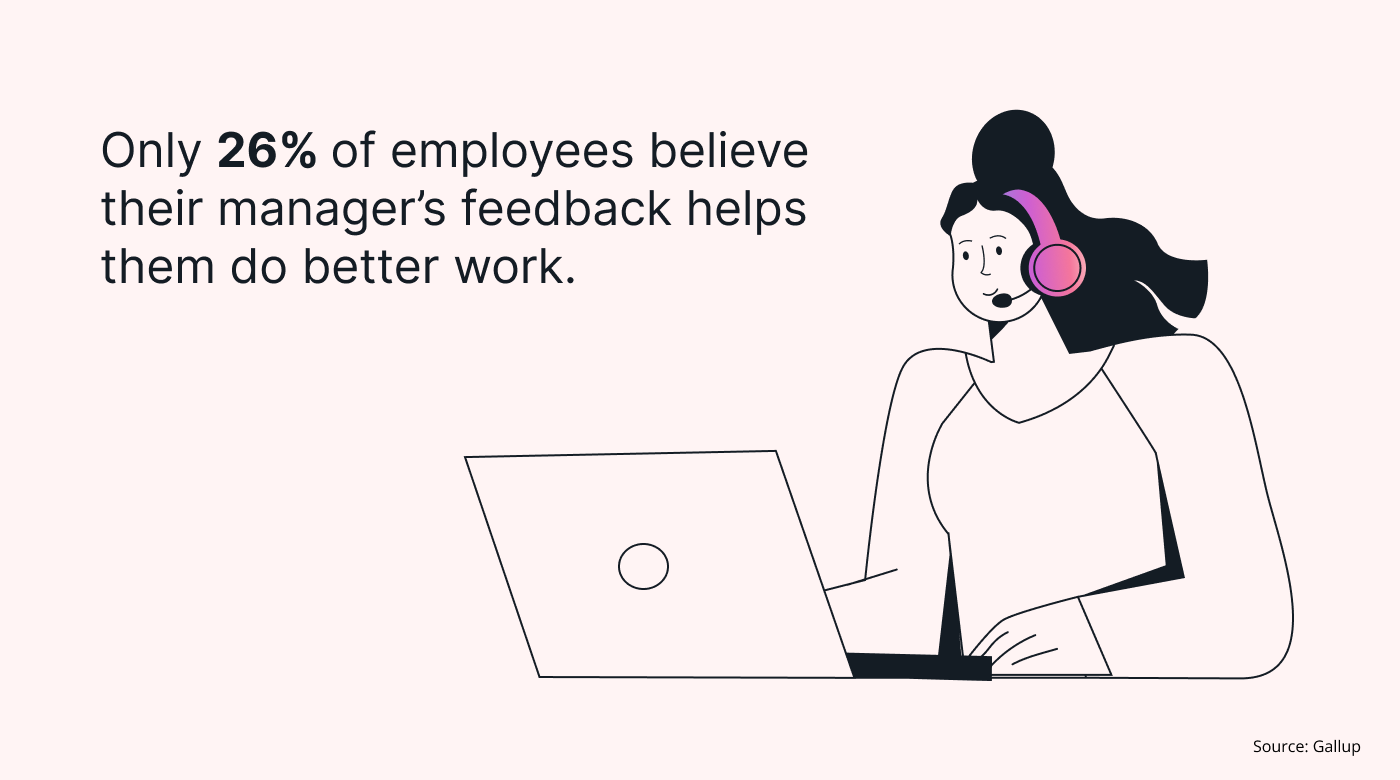Humans have been communicating ever since the first caveman uttered a grunt. But while a few grunts here and there might’ve been fine in the Stone Age, it’s not going to cut it in the 21st century — especially as a small business owner.
How you communicate with your employees can be the difference between a cohesive, productive team and a stack of resignation letters on your desk — not to mention your company’s reputation. But if you do it right, you can reap all the benefits of effective communication.
Let’s explore some of those benefits and what you can do to improve communication in the workplace.
Why is effective communication important for businesses?
Businesses are run by people for people. To remain profitable, they must convince one set of people to work for them (employees) and another set to buy things from them (clients and customers).
How a business convinces each set of people to do that depends largely on how they communicate. Getting this right is especially important in the age of the “Great Resignation.”
The reality is that we live in a time where employees are more discerning about where they work and comfortable changing jobs if they aren’t happy. How you convey tasks, feedback, policies, best practices, and other information can affect how happy people are at work.
Here’s the problem business owners face: only 7% of US workers feel that communication is “accurate, timely and open” at their place of work. That means a whopping 93% of workers are getting inaccurate, untimely, and confusing messages from their employers, which severely impacts how they do their jobs.
The situation is so grim that, in some cases, it drives people to quit.
8 benefits of effective communication
Good communication, however, empowers employees to do their best work and fosters collaboration, productivity, and trust. Here are eight benefits of communicating effectively with your team:
1. It promotes trust
Effective communication tells your team three vital things:
- You’ll listen to them.
- You’ll see their point of view and are open to discussing options.
- You won’t force your way of doing things onto them.
When your team sees that they can open up to you without putting their jobs in jeopardy, a culture of trust in the workplace forms.
Unfortunately, there’s a bit of a gap between how much leaders think employees trust them and how much employees actually do. Seventy-nine percent of business executives say their employees trust them, but only 65% of employees agree.
It’s important to build trust with not only your team but also your clients and customers. After all, they’re your business’s bread and butter.
According to research from PwC, after industry conditions, consumer trust is the second-biggest factor in determining a company’s profitability. What’s worse is that while 84% of business executives think their customers highly trust the company, only 27% of their customers actually do (at least to that degree).
Seventy-two percent of both employees and consumers believe clear communication is very important to building trust with a company.
2. It solves problems and prevents new ones from forming
Most problems are caused by poor communication. This leads to misunderstanding and confusion, which can result in employees feeling disrespected, disregarded, or taken advantage of.
If these issues aren’t resolved, they can lead to a breakdown in relationships or even a hostile work environment.
Clear and open communication can help resolve problems and prevent new ones from forming. It can also help employees better understand their managers and leaders — and vice versa.
3. It brings clarity and direction to your team
While the pandemic has largely subsided, the way we work continues to change. Unfortunately, many businesses haven’t communicated what post-pandemic work is going to be like to their employees, leaving 47% of employees anxious and burnt out.
Effective communication is vital to ease into these transitions.
But it isn’t just clarity regarding post-pandemic work that we need. Effective communication also guarantees that employees understand what’s expected of them and what role they play in the company. This will give them the direction they need to perform their duties well.
Another consideration is that employees might get bad performance reviews and not know why, leaving them resentful. They might think they’ve met the performance standards set out for them when they really haven’t.
Effective communication skills can prevent such misunderstandings and ensure that employees and leadership are on the same page regarding roles and expectations.
4. It builds better relationships
Listening, providing timely and constructive feedback, and offering suggestions demonstrate to your team that you respect them. That, in turn, makes them more likely to respect you and your leadership.
And if you model healthy communication to your team, they’ll also be more likely to communicate efficiently with each other, leading to stronger relationships among them. Strong relationships encourage team building, which can boost collaboration.
 |
Healthy communication also translates into better relationships with clients and customers. First, not only do clients notice how your team communicates with each other, but that type of communication also seeps into how your team deals with clients.
Also, if your clients like the way you communicate with them, they’ll be much more willing to stay with you instead of going to a competitor. They might even refer their business friends to you!
5. It increases engagement
Only 34% of employees in the US are engaged in their places of work. That’s quite dire, considering that disengaged employees cost $7.8 trillion globally in lost productivity.
Fortunately, it’s not difficult to keep your team engaged, and a lot of it has to do with how you communicate. Kempinski Hotels, for example, welcomes employee feedback. “We cannot improve our engagement if we are not ready to take in constructive feedback from our colleagues,” says Melissa Salibi, Kempinski’s Chief Human Resources Officer.
Kempinski also recognizes their employees’ skills and talents. “We encourage a culture of recognition and reward and do not miss the opportunity to celebrate our colleagues and their achievements,” Salibi says.
Communicating about goals and future growth is also essential to driving engagement. Employees are 2.8x more engaged when they’ve had conversations with their manager in the past six months about their goals and successes.
6. It boosts productivity
Communication has always been important for productivity, but it’s especially important now in the age of remote work, where some employees may be working offsite.
Employees who feel included in high-level communication are nearly 5x more likely to be productive than those who don’t. Yet, only 26% of employees believe that their manager’s feedback helps them improve at work. That means many workers don’t find their manager’s feedback helpful at all — and this likely stems from how that feedback is communicated.
Feedback helps employees understand two things: their roles and responsibilities and your expectations of them.
 |
Having that understanding boosts worker efficiency. Not having it — or having limited resources to work with — breeds frustration, which leads to stress, anxiety, and, eventually, burnout. Making all information easily accessible and communicating it in an effective manner will help your team members perform at their best and thus increase productivity.
7. It creates a healthy workplace culture
As mentioned above, most workplace problems arise due to bad communication. And when an organization experiences problem after problem, a toxic work environment that lowers the entire staff’s morale is the result.
Effective communication skills remove many of the factors that cause a toxic workplace.
Instead, they can be used to foster an environment where employees are valued, treated equally, and feel understood by their leaders and colleagues. And that creates a healthy company culture where employees can thrive.
Don’t just take our word for it, though. Seventy-six percent of employees say an organization’s culture is extremely important for them to perform their roles effectively. Those who feel connected to their organization’s culture are also:
- 3.7x more likely to be engaged at work
- 5.2x more likely to recommend their workplace as a great place to work
- 68% less likely to feel burnt out
- 55% less likely to be actively looking for new jobs
8. It improves employee retention
When employees work in an environment where communication is “open, timely and accurate,” they’re more engaged and are willing to stay with the organization.
Unfortunately, communication is so bad at some companies that it drives people to quit — this was happening even before the great disruptor known as COVID-19, when most people still worked on-site.
Leaders can help ensure their team members feel like a valued part of the organization by listening to their concerns, allowing them to contribute ideas, and considering their suggestions.
Naturally, this makes the employees more likely to stay.
3 tips for effective workplace communication
Here are three tips to help you better communicate with your team:
1. Practice active listening
Active listening is a crucial component of positive communication. If employees sense they’re not being heard, they might think, “What’s the point?” and give up on talking to you (and possibly each other) altogether. After all, nobody wants to talk to a brick wall (or a micromanager).
Regrettably, this leads to issues not being reported and may eventually result in a breakdown in team relations and reduced productivity.
But what exactly is active listening?
 |
Active listening requires paying attention to the following components of an employee’s communication:
- What they say
- What they leave out
- Their body language
- Other non-verbal cues (to gauge their emotional state)
If you do it right, not only will employees feel more comfortable talking to you, but you’ll also have a more accurate picture of how things are going on the ground. This will enable you to better plan for your business.
2. Provide timely feedback
Your team needs to know if they’re on the right track. Timely feedback lets them know where they’re doing well and where they need adjustments — it can even motivate them to perform better.
But most importantly, providing feedback on time helps your team understand your expectations.
Make sure you provide positive feedback as well as constructive criticism. While constructive criticism helps your team perform better, positive feedback lets them know you appreciate their efforts and increases the likelihood that they’ll raise issues as needed.
3. Choose the right communication channels
Choosing the right communication channels guarantees that team members will get the information they need to do their jobs on time. Choosing the wrong ones can not only delay (or cut off) much-needed information but also confuse, frustrate, or isolate your team.
For example, many frontline workers rely on their cell phones and apps to communicate. If you try to Zoom them while they’re dealing with clients, they’re almost guaranteed not to receive the message.
Texting them or using an instant messaging app may be a better option, as they’ll receive it right away.
Try to consider the details of the message when you choose which communication channel to use. For example, is the information urgent, or can it wait? Do you need to send it to your entire team or just one person?
 |
Then, tailor your channels to your team.
What’s the most effective way to get your message across? What channels does your team prefer? Do they like emailing back and forth, or do they prefer using a tool like Slack?
Maybe they’d prefer to do all their collaborating and communicating on one platform, like Motion. Motion helps your team stay focused and aligned and finish meaningful work faster because it consolidates and streamlines communication.
Make communication easier for your team with Motion
In an age when technology reigns supreme, communication has never been more important in the workplace. When done right, small business owners can expect to reap the full benefits of effective communication — from clarity at work to improved employee engagement.
So why not make it easier for your team to communicate with each other?
Motion is an all-in-one project management tool that comes with its own communication platform so your team gets all the information they need in one place. No more scrounging around for chats, tasks, and data — it’s all here, right at your fingertips.
Now that’s effective communication!
Try Motion for free and start reaping the benefits of effective communication.





